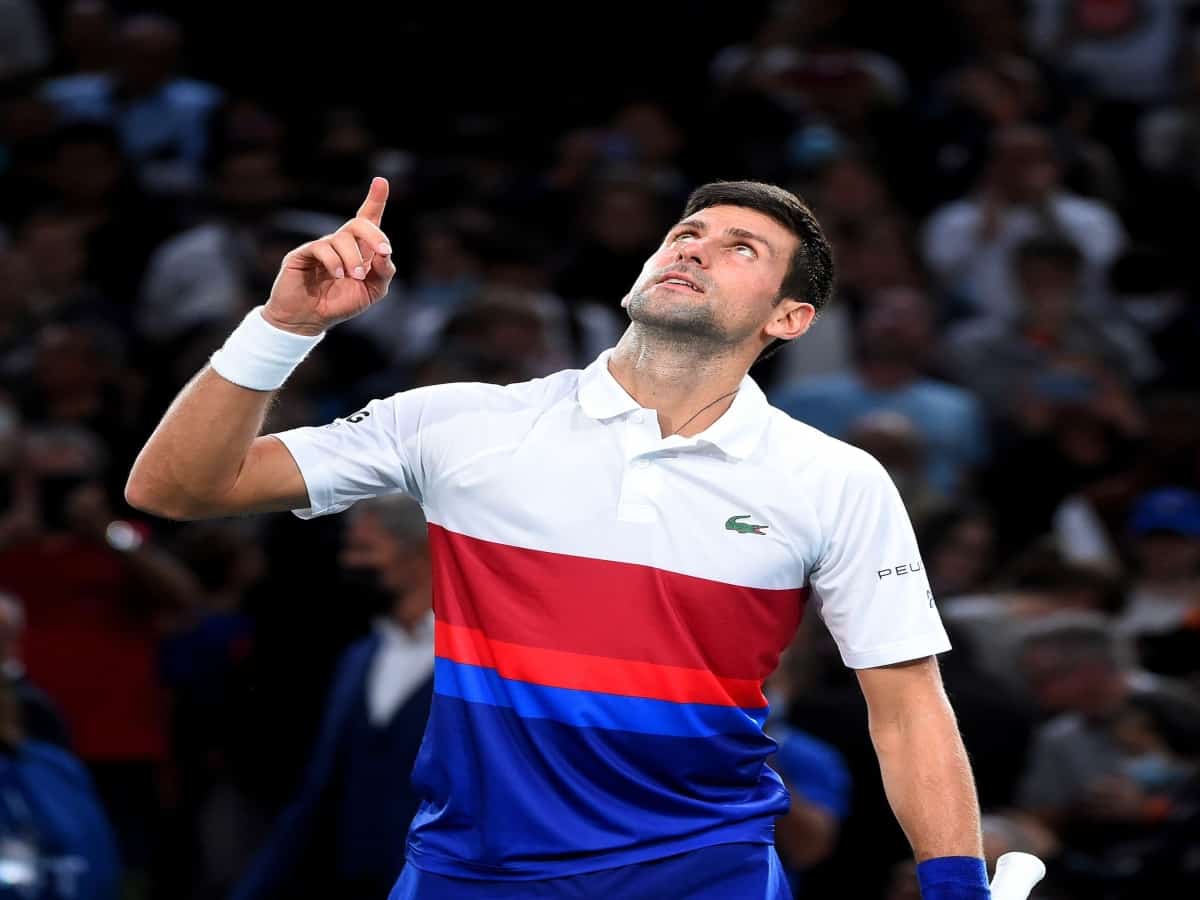
Brisbane: Novak Djokovic’s chance to play for a 10th Australian Open title was thrown into limbo Thursday when the country denied him entry and canceled his visa because he failed to meet the requirements for an exemption to COVID-19 vaccination rules.
The top-ranked Djokovic announced on social media Tuesday that he had exemption permission and landed in Australia late Wednesday after receiving a medical exemption from the Victoria state government that would shield him from the strict vaccination regulations in place for this year’s first major tennis tournament.
But border authorities did not accept the exemption. The Australian Border Force issued a statement saying Djokovic failed to meet entry requirements.
The rule is very clear, Prime Minister Scott Morrison told a news conference Thursday. You need to have a medical exemption. He didn’t have a valid medical exemption. We make the call at the border, and that’s where it’s enforced.
Health Minister Greg Hunt said the visa cancellation followed a review of Djokovic’s medical exemption by border officials who looked at the integrity and the evidence behind it.
He said Djokovic was free to appeal the decision, but if a visa is cancelled, somebody will have to leave the country.
The president of Djokovic’s native Serbia’s blasted the harassment of the star, who was detained overnight at Melbourne Tullamarine Airport. The 20-time major winner had to wait more than eight hours at the airport to find out if he would be allowed into the country. He was later moved to a hotel, pending arrangements for a flight or legal action.
Morrison confirmed the cancellation in a Twitter post: “Rules are rules, especially when it comes to our borders. No one is above these rules. Our strong border policies have been critical to Australia having one of the lowest death rates in the world from COVID, we are continuing to be vigilant.
Responding later to questions about confusion between the different requirements of federal and state governments, Morrison said it was ultimately up to individual travellers to have correct documentation when they arrive.
The prime minister also rejected the suggestion that Djokovic was being singled out, but he acknowledged that other players may be in Australia on the same type of medical exemption and visa.
One of the things the Border Force does is they act on intelligence to direct their attention to potential arrivals, he said. When you get people making public statements about what they say they have, and they’re going to do, they draw significant attention to themselves.
Anyone who does that whether they’re a celebrity, a politician, a tennis player…they can expect to be asked questions more than others before you come.
The medical exemptions, vetted by two independent panels of experts and based on information supplied anonymously by players, had been designed to allow Djokovic to play in the Australian Open, regardless of his vaccination status for COVID-19.
He has spoken out against vaccines in the past and has steadfastly refused to acknowledge whether he received any shots against the coronavirus.
His father, Srdjan Djokovic, told the B92 internet portal that his son was held at the airport in a room which no one can enter and guarded by two police officers.
Serbian President Aleksandar Vucic said on Instagram that he spoke to Djokovic while he was being held at the airport. He said Serbian authorities were taking measures so the harassment of the best tennis player in the world be stopped in the shortest possible time .
Djokovic’s revelation on social media that he was heading to Australia seeking a record 21st major title instantly became a hot political topic, with many Australians furious that he was granted an exemption to enter the country. Critics questioned what grounds he could have for the exemption, and backers argued that he has a right to privacy and freedom of choice.
Australian Open tournament director Craig Tiley defended the completely legitimate application and process and insisted there was no special treatment for Djokovic.
The Victoria state government has mandated that only fully vaccinated players, staff members, fans and officials can enter Melbourne Park when the tournament begins Jan 17.
Only 26 people connected with the tournament applied for a medical exemption and, Tiley said, only a handful were granted.
Among the acceptable reasons for an exemption are acute major medical conditions, serious adverse reaction to a previous dose of COVID-19 vaccine or evidence of a COVID-19 infection within the previous six months.
Djokovic tested positive for the coronavirus in June 2020 after he played in a series of exhibition matches that he organized in Serbia and Croatia without social distancing amid the pandemic.
Concerns about Djokovic’s visa status started building Wednesday.
Morrison initially said the medical exemption decision was a matter for the government of Victoria, where Melbourne is the state capital.
But Home Affairs Minister Karen Andrews then clarified the border process.
While the Victorian government and Tennis Australia may permit a non-vaccinated player to compete in the Australian Open, it is the Commonwealth government that will enforce our requirements at the Australian border, Andrews said.
If an arriving individual is not vaccinated, they must provide acceptable proof that they cannot be vaccinated for medical reasons to be able to access the same travel arrangement as fully vaccinated travellers.
When asked again about Djokovic’s case later Wednesday, Morrison added: If that evidence is insufficient, then he won’t be treated any different to anyone else, and he’ll be on the next plane home



